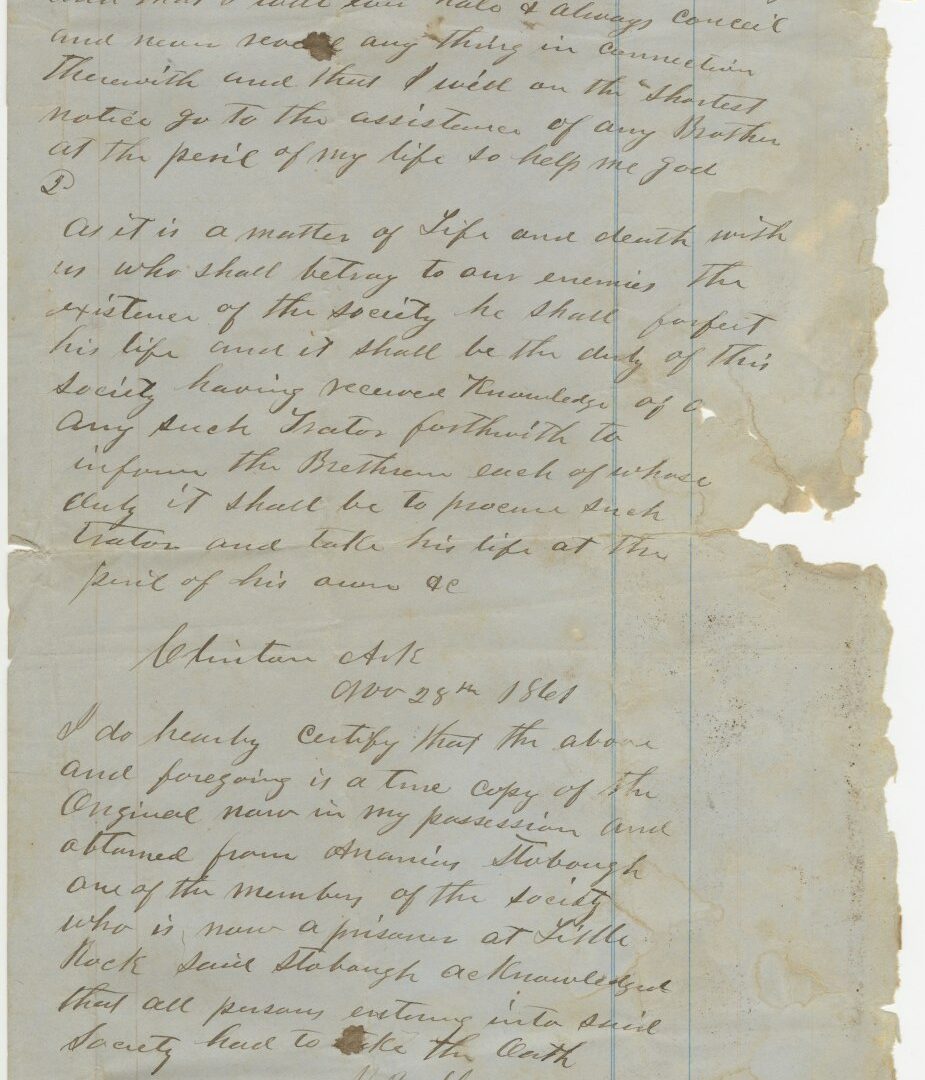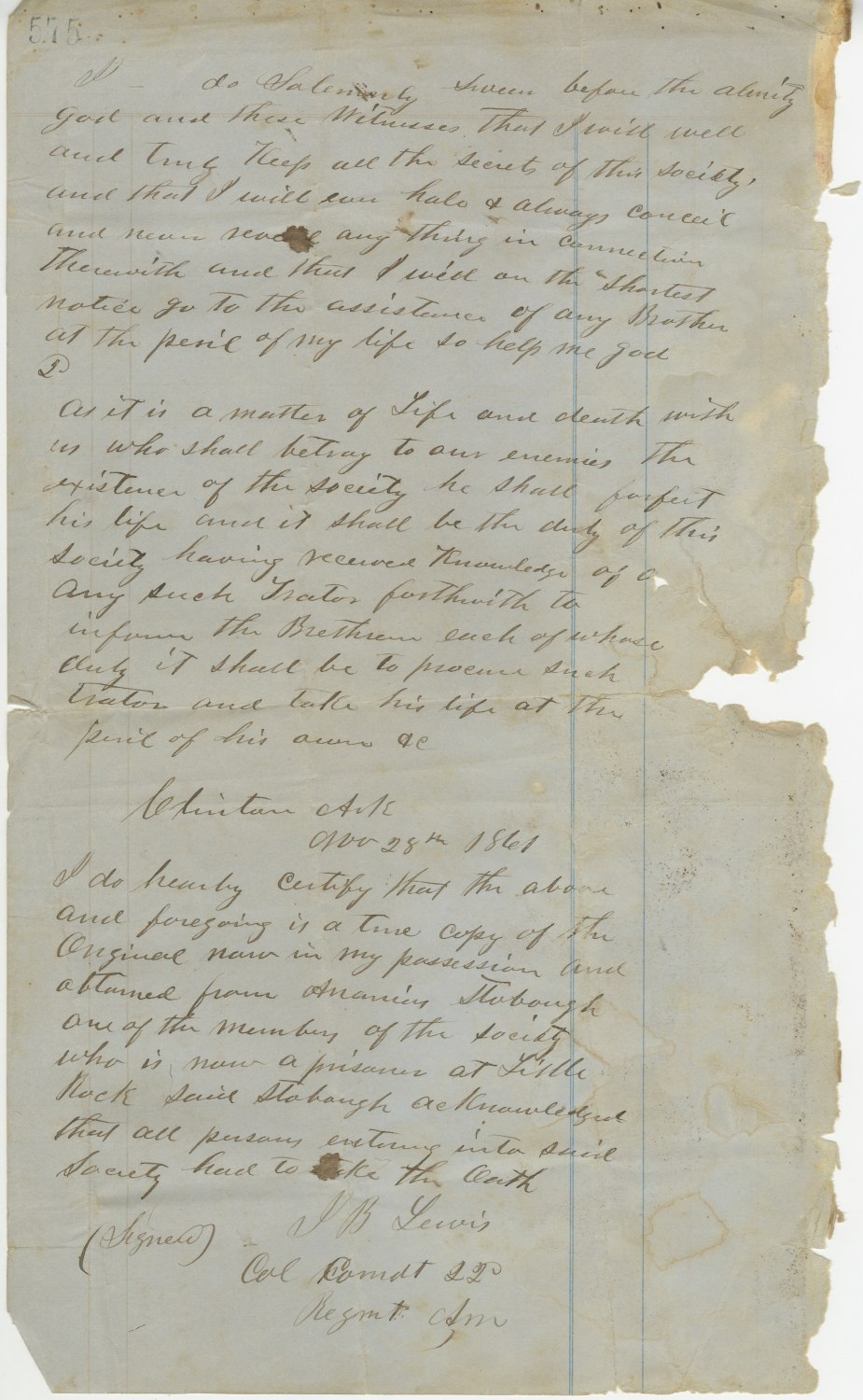Anti-Confederates in the South
Introduction
In December 1860, following the November election of Abraham Lincoln to the office of President of the United States, South Carolina became to first slave-holding state that seceded from the Union. By February 1, 1861, six more Southern slave-holding states seceded. On February 8, 1861, the seven rebel states (Alabama, Florida, Georgia, Louisiana, Mississippi, South Carolina, and Texas) formed the Confederate States of America, known also as the Confederacy. After the first shots at Fort Sumter were fired on April 12, 1861, four other states joined Arkansas, North Carolina, Tennessee, and Virginia. The eleven states were determined to preserve their slave-holding privileges. That does not mean, however, that all white Southerners supported the Confederacy and its cause. While some did not agree with the official stand of the Confederacy but remained passive, others engaged in secret activities to fight against the Confederacy in the seceded South. One such initiative was the Arkansas Peace Society, a loose affiliation of anti-Confederate groups established shortly after Arkansas seceded from the Union. Those groups were usually secret because Confederates, who represented the majority of white Southerners, believed their members were traitors. The secret anti-Confederate groups in Arkansas were particularly popular in northern counties, where slavery was not as crucial to the economy as in other parts of the state. They did not last long, however. Most were disbanded already at the end of 1861 when the persecution of their members resulted in large-scale arrests. After the groups were forced to dissolve, some former members and supporters of the Arkansas Peace Society left Arkansas to join the Union forces and fight against the Confederacy. In this activity, you will examine a document that includes an oath that individuals supporting the cause of the Arkansas Peace Society were required to take before joining an anti-Confederate organization.
Activity Questions
- When was this document written? See the photo caption for more information.
- What kind of oath does this document contain? See “Introduction” for more information.
- What did a person who signed this oath “solemnly swear”?
- Why does this oath require to “Truly Keep all the secrets of this society”?
- Who are the “enemies” mentioned in the oath?
- Who would be considered a traitor according to this oath? What will happen to traitors?
- See the note added underneath the date of November 28, 1861.
- What does this note tell us about the origin of this document?
- Who was the person that wrote this document?
- How did the person who wrote this document likely obtain the secret oath?
- What does this note tell us about the experience of anti-Confederates in Arkansas in late 1861?
Primary Sources
To learn more about the primary sources featured in the activities above, click the following links:
Arkansas Social Studies Standards
Social Studies (US History 1800-1900), Grades 8
- Strand: Era 5: Civil War and Reconstruction 1850-1877
- Content Standard 2: Students will analyze the American Civil War and Reconstruction and their effects on the social, economic, and political development of America.
- Era5.2.8.1 Develop historical arguments and explanations of causes of the Civil War using a variety of sources from multiple perspectives
- Era5.2.8.3 Analyze social and economic effects of the Civil War on America
- Era5.2.8.4 Analyze the historical significance of selected Civil War battles, events, and people
Arkansas History, Grades 7 – 8
- Strand: History
- Content Standard 7: Students will examine the impact of historical events and people on the development of Arkansas
- H.7.AH.7-8.3 Analyze the historical significance of selected Civil War battles, events, and people in various regions of Arkansas
Arkansas History, Grades 9 – 12
- Strand: Era 3: Civil War Through the Gilded Age 1861-1900
- Content Standard 3: Students will analyze factors that influenced the perspectives of Arkansans from the Civil War through the Gilded Age.
- Era3.3.AH.9-12.1 Analyze causes and effects of the secession of Arkansas from the Union using a variety of primary and secondary sources (e.g., state leaders, cooperationists, Secession Convention)
- Era3.3.AH.9-12.2 Research social, economic, and political effects of the Civil War on citizens in various regions from multiple perspectives
- Era3.3.AH.9-12.3 Analyze the historical significance of selected Civil War battles, events, and people in various regions of Arkansas
More Information
Downloadable Guides and Handouts
We encourage K-12 educators to use History Alive: Virtually! in a way that will best match their classroom needs. The “Exercise” handout includes a complete exercise as featured on this website, the “Primary Sources” handout includes only primary sources used in the exercise, and the “Questions” handout includes analytical questions from the exercise but is editable and can be easily changed to best match students’ needs.
Anti-Confederates in the South – Exercises


